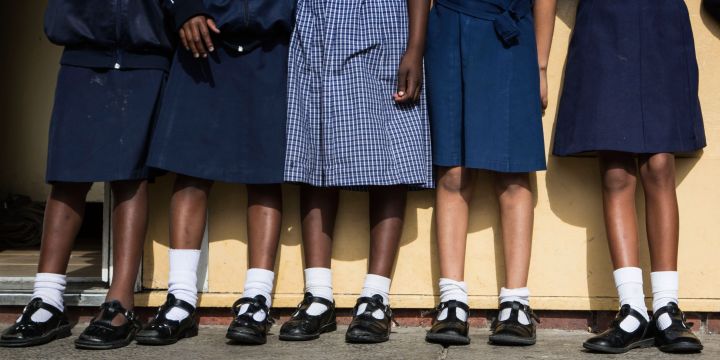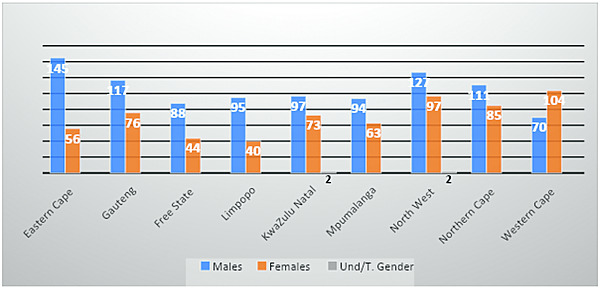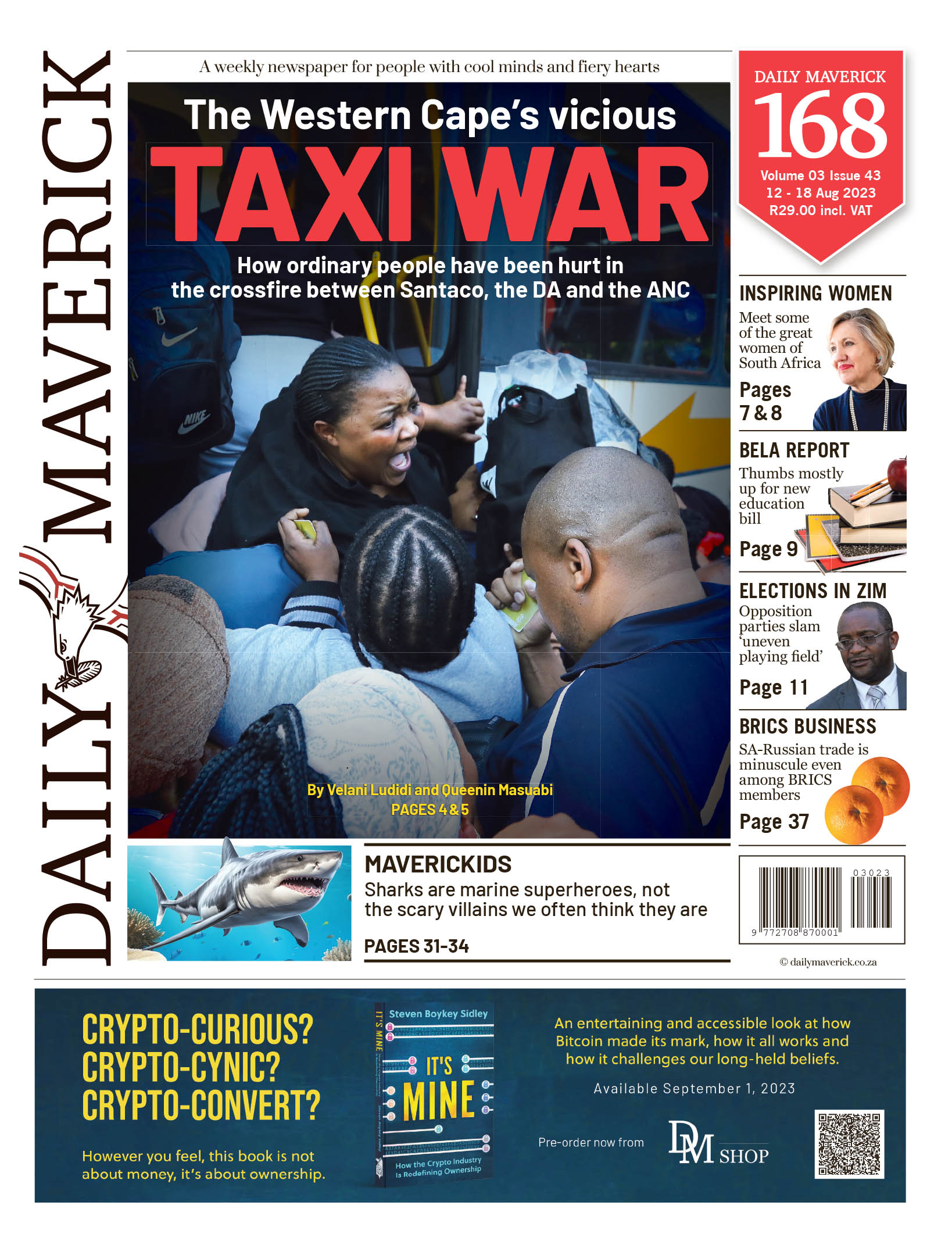BASIC EDUCATION LAWS
Parliamentary report mostly gives thumbs-up to Bela Bill, with a few amendments

A draft parliamentary report on the Basic Education Laws Amendment Bill favours making Grade R the new compulsory school starting age and rejects the selling of alcohol on school premises.
The compulsory attendance of school from Grade R was widely supported during public hearings on the Basic Education Laws Amendment (Bela) Bill, according to a draft parliamentary report.
The report, which Daily Maverick exclusively obtained, was discussed at a meeting of the Portfolio Committee on Basic Education on 8 August.
Bela is aimed at addressing some of the challenges in basic education, such as reducing drop-out rates, strengthening governance, preventing misuse of school funds and promoting teaching and learning.
Participants in the public hearings indicated that the move to make Grade R compulsory would enhance the education system, that inclusion was necessary for early childhood development and that it would benefit Grade R teachers by improving their quality of life, according to the report.
“The participants in the public hearings who supported the Bill stressed [its] transformative nature … particularly in language and admission policies, as historically disadvantaged children are denied access to former Model C schools due to language and admission policies,” the report read.
It said participants also argued that disclosure of the financial interests of school governing bodies (SGBs) would promote accountability and transparency.
Committee chairperson Bongiwe Mbinqo-Gigaba declined to comment on the submissions until after the deliberations and adoption of the report on the Bill.
Deliberations on the draft report are scheduled to take place from 15 to 18 August 2023.
About Bela
The Bela Bill was introduced in Parliament on 15 December 2021, and was later referred to the Portfolio Committee on Basic Education for consideration.
It then embarked on the legislative process to consider Bela amendments that may be referred back to Parliament.
The Bill seeks to amend the South African Schools Act and the Employment of Educators Act. The committee held two meetings on the Bill in February 2021, during which a briefing was sought from the Department of Basic Education.
After in-house discussions, the committee called for written public submissions from 1 May to 15 June 2022. That deadline was extended to 15 August to allow the public more opportunity to participate.
Proposed amendments included:
- Making Grade R the compulsory school starting age;
- Criminalising parents who don’t ensure their children are in school;
- Holding SGBs accountable for their financial interests;
- abolishing corporal punishment, initiation and hazing practices;
- Encouraging home-schooling learners to be registered;
- Allowing schools to sell alcohol outside school hours;
- Giving the department’s heads of department (HoDs) power over language policies and curriculums; and
- Prohibiting teachers from conducting business with the state.
Views on the proposals
Participants in the public hearings said criminalising parents for not ensuring their children were at school would not address the underlying problem and would negatively affect women, who are often the primary caregivers.
They said the imprisonment penalty should not exceed six months, and that HoDs should capacitate parents.
There was support for the clause that would make Grade R compulsory, which emphasised the need for the department to intervene in ensuring that SGBs did not discriminate against learners when developing admission policies.
“They [participants in the public hearings] did not support the idea of SGBs [being] given unlimited powers to determine such policies without checks and balances. They called for an adjudicator in the form of the HoD,” the report read.
Opposing views were that the Bill would take away the powers of the SGBs and allow centralisation of power against the will of the parents.
The department would, according to participants, not have the capacity to approve admission policies at all public schools.
The exemption clause on amending the code of conduct based on accommodating learners’ different cultural and religious backgrounds was commended.
This, the report read, was because schools had denied learners access to education based on cultural and religious differences under the schools’ code of conduct policy.
The report said this was discriminatory for many learners.
There was overwhelming opposition to the sale of alcohol on school premises, with uniform views in the hearings. Deletion of the clause was highly recommended by all.
Participation numbers
There were 11,264 participants at the provincial public hearings. Of these, 1,586 made oral submissions.
Some participants handed in written submissions during the public hearings.
North West had the highest number of attendees, at about 1,888, followed by Mpumalanga with 1,690 and Limpopo with 1,326. The provinces with the least attendees were the Free State (870) and the Western Cape (1,043).
There were 1,143 attendees in the Eastern Cape, 1,127 in Gauteng, 1,113 in KwaZulu-Natal, and 1,060 in the Northern Cape.
“It was worth noting that North West led in terms of the most … attendees as well as speakers at 224,” the report said.

A breakdown of provincial parliamentary hearings into the Bela Bill. (Image: Supplied)
Following North West in terms of the number of speakers was the Eastern Cape with 207, the Northern Cape with 196, Gauteng with 193, KZN with 178, the Western Cape with 174, and Mpumalanga with 157.
The two provinces with the fewest speakers were Limpopo with 135 and the Free State – the lowest of the nine provinces – with 133, according to the report.
In terms of submissions, North West led with 1,213, followed by Mpumalanga with 814 and Gauteng at 520. The Western Cape posted the fewest submissions, at 340.
Who supported and who rejected it?
A total of 1,586 speakers made oral submissions, the report read, with 726 (46%) in support while 682 (42%) rejected it.
The report said 102 (7%) of the speakers partially supported the Bill, while 76 (5%) speakers were undecided.
“It was noted that the Bill was most supported by speakers from various stakeholders in the basic education sector, such as teacher unions dominated by the South African Democratic [Teachers’] Union (Sadtu), Congress of South African Students (Cosas), SGB [associations] and other organisations, such as the Congress of South African Trade Unions (Cosatu), Sanco, the ANC,” the report read.
The Bill was rejected by an organisation from the home-schooling sector, the DA, the African Christian Democratic Party, AfriForum and Freedom Front Plus. It was partially rejected by the Federation of Governing Bodies of South African Schools and the Suid-Afrikaanse Onderwysersunie. DM
This story first appeared in our weekly Daily Maverick 168 newspaper, which is available countrywide for R29.




















 Become an Insider
Become an Insider
Comments - Please login in order to comment.